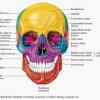I haven´t seen any evidence that suggest´s that M-B12 would be dangerous in higher dosages. That doesn´t mean that it isn´t dangerous. But I am thinking of keeping the mega dose on my long term stack because I have sensed some improvement. I hope that this doesn´t come and bite me in the ass though.
Excessive doses taken over long periods of time can cause nerve damage, numbness and dysfunctions in motor control... Be careful.
WHAT HE SAID 
You must have B-12 confused with B-6. Totally different.
Not so

Excessive and/or long-term doses of VITAMIN B12 can cause the following SIDE EFFECTS:
HEADACHE, DIZZINESS, INSOMNIA, AGITATION, ANXIETY, PANIC ATTACKS, RESTLESSNESS, CARDIAC ARRHYTHMIA, ANGINA, TINGLING and NUMBNESS.
The SIDE EFFECTS profile for VITAMIN B12 is a U-SHAPED CURVE in that both TOO LITTLE and TOO MUCH induce similar SIDE EFFECTS

Furthermore, there is ever increasing substantiation that EXCESS VITAMIN B12 is CARCINOGENIC (i.e.
CAUSES CANCER). For example, see the following:
Sem Hop. 1970 Jul 10;46(31):2170-4.
[Hazards of administering vitamin B12 to cancer patients].
[Article in French]
Chauvergne J, Hoerni B, Hugues A, Lagarde C, Le Treut A, Marée D, Touchard J.
PMID: 4318351
This study demonstrated that excessive B12 consumption encourages cell division in general and certain tumor cells in particular
------------------------------------------------------------------------------------------------------------------------------------------------------------------------------------------------
JAMA. 2009 Nov 18;302(19):2119-26.Cancer incidence and mortality after treatment with folic acid and vitamin B12.
Ebbing M, Bønaa KH, Nygård O, Arnesen E, Ueland PM, Nordrehaug JE, Rasmussen K, Njølstad I, Refsum H, Nilsen DW, Tverdal A, Meyer K, Vollset SE.
Source
Department of Heart Disease, Haukeland University Hospital, Jonas Liesvei 65, Bergen, Norway 5021. marta.ebbing@helse-bergen.no
AbstractCONTEXT:
Recently, concern has been raised about the safety of folic acid, particularly in relation to cancer risk.
OBJECTIVE:
To evaluate effects of treatment with B vitamins on cancer outcomes and all-cause mortality in 2 randomized controlled trials.
DESIGN, SETTING, AND PARTICIPANTS:
Combined analysis and extended follow-up of participants from 2 randomized, double-blind, placebo-controlled clinical trials (Norwegian Vitamin Trial and Western Norway B Vitamin Intervention Trial). A total of 6837 patients with ischemic heart disease were treated with B vitamins or placebo between 1998 and 2005, and were followed up through December 31, 2007.
INTERVENTIONS:
Oral treatment with folic acid (0.8 mg/d) plus vitamin B(12) (0.4 mg/d) and vitamin B(6) (40 mg/d) (n = 1708); folic acid (0.8 mg/d) plus vitamin B(12) (0.4 mg/d) (n = 1703); vitamin B(6) alone (40 mg/d) (n = 1705); or placebo (n = 1721).
MAIN OUTCOME MEASURES:
Cancer incidence, cancer mortality, and all-cause mortality.
RESULTS:
During study treatment, median serum folate concentration increased more than 6-fold among participants given folic acid. After a median 39 months of treatment and an additional 38 months of posttrial observational follow-up, 341 participants (10.0%) who received folic acid plus vitamin B(12) vs 288 participants (8.4%) who did not receive such treatment were diagnosed with cancer (hazard ratio
, 1.21; 95% confidence interval [CI], 1.03-1.41; P = .02). A total of 136 (4.0%) who received folic acid plus vitamin B(12) vs 100 (2.9%) who did not receive such treatment died from cancer (HR, 1.38; 95% CI, 1.07-1.79; P = .01). A total of 548 patients (16.1%) who received folic acid plus vitamin B(12) vs 473 (13.8%) who did not receive such treatment died from any cause (HR, 1.18; 95% CI, 1.04-1.33; P = .01). Results were mainly driven by increased lung cancer incidence in participants who received folic acid plus vitamin B(12). Vitamin B(6) treatment was not associated with any significant effects.
CONCLUSION: Treatment with folic acid plus vitamin B(12) was associated with increased cancer outcomes and all-cause mortality in patients with ischemic heart disease in Norway, where there is no folic acid fortification of foods.
---------------------------------------------------------------------------------------------------------------------------------------------------------
Cancer Epidemiol Biomarkers Prev. 2010 Jun;19(6):1632-42. Epub 2010 May 25.
Circulating folate, vitamin B12, homocysteine, vitamin B12 transport proteins, and risk of prostate cancer: a case-control study, systematic review, and meta-analysis.
Collin SM, Metcalfe C, Refsum H, Lewis SJ, Zuccolo L, Smith GD, Chen L, Harris R, Davis M, Marsden G, Johnston C, Lane JA, Ebbing M, Bønaa KH, Nygård O, Ueland PM, Grau MV, Baron JA, Donovan JL, Neal DE, Hamdy FC, Smith AD, Martin RM.
Source
Department of Social Medicine, University of Bristol, Bristol, United Kingdom. simon.collin@bristol.ac.uk
AbstractBACKGROUND:
Disturbed folate metabolism is associated with an increased risk of some cancers. Our objective was to determine whether blood levels of folate, vitamin B(12), and related metabolites were associated with prostate cancer risk.
METHODS:
Matched case-control study nested within the U.K. population-based Prostate testing for cancer and Treatment (ProtecT) study of prostate-specific antigen-detected prostate cancer in men ages 50 to 69 years. Plasma concentrations of folate, B(12) (cobalamin), holo-haptocorrin, holo-transcobalamin total transcobalamin, and total homocysteine (tHcy) were measured in 1,461 cases and 1,507 controls. ProtecT study estimates for associations of folate, B(12), and tHcy with prostate cancer risk were included in a meta-analysis, based on a systematic review.
RESULTS:
In the ProtecT study, increased B(12) and holo-haptocorrin concentrations showed positive associations with prostate cancer risk [highest versus lowest quartile of B(12) odds ratio (OR) = 1.17 (95% confidence interval, 0.95-1.43); P(trend) = 0.06; highest versus lowest quartile of holo-haptocorrin OR = 1.27 (1.04-1.56); P(trend) = 0.01]; folate, holo-transcobalamin, and tHcy were not associated with prostate cancer risk. In the meta-analysis, circulating B(12) levels were associated with an increased prostate cancer risk [pooled OR = 1.10 (1.01-1.19) per 100 pmol/L increase in B(12); P = 0.002]; the pooled OR for the association of folate with prostate cancer was positive [OR = 1.11 (0.96-1.28) per 10 nmol/L; P = 0.2) and conventionally statistically significant if ProtecT (the only case-control study) was excluded [OR = 1.18 (1.00-1.40) per 10 nmol/L; P = 0.02].
CONCLUSION:Vitamin B(12) and (in cohort studies) folate were associated with increased prostate cancer risk.
---------------------------------------------------------------------------------------------------------------------------------------------------------
I should add that supplementation with excessive amounts of VITAMIN B6 is equally ill advised





















































